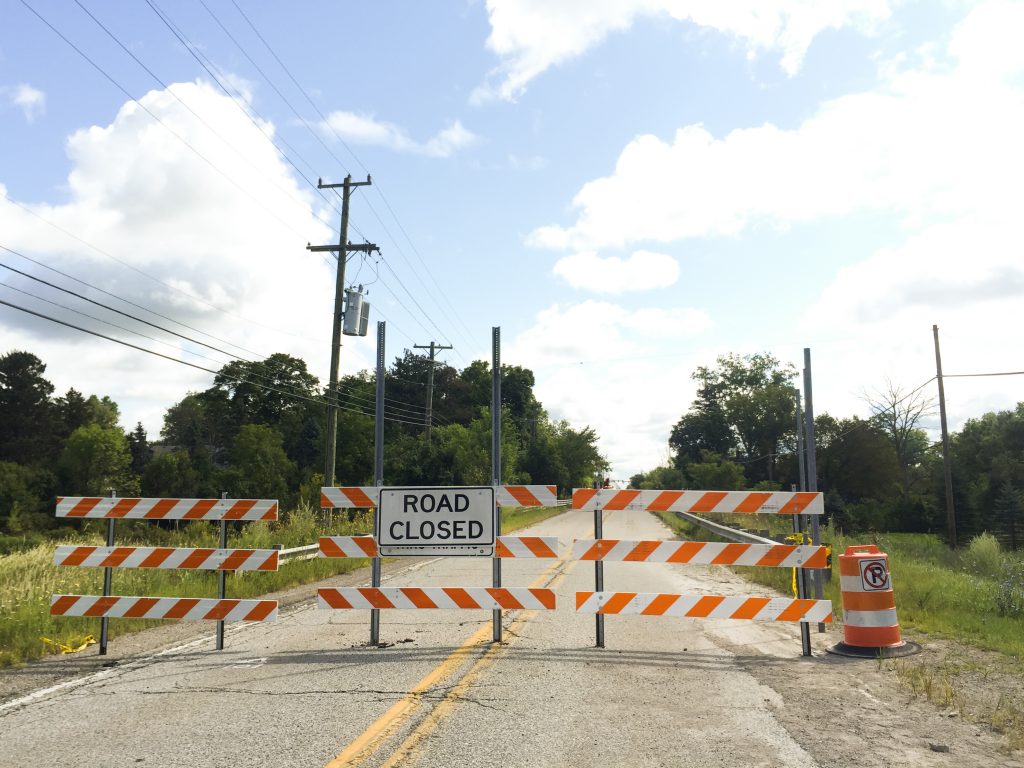Supporters Hope Infrastructure Spending Can Help Reduce Inequality in Michigan
But it’s not just roads and bridges. The Flint Water Crisis is an example of how infrastructure issues reflect societal inequities.

The new focus on a massive infrastructure spending plan in Washington has big implications here in Michigan.
As part of the weekly series MichMash, hosts Cheyna Roth and Jake Neher talk about what supporters of a massive investment in infrastructure are saying about what it would mean for inequality in Michigan.
Subscribe to MichMash on iTunes, Spotify, Google Podcasts, NPR One or wherever you get your podcasts.
President Biden is now pushing for up to $3 trillion in new spending to rebuild American infrastructure. This is an issue that is especially important here in Michigan, where Gov. Gretchen Whitmer campaigned and won on the slogan “Fix the Damn Roads.” State lawmakers have spent a decade trying to come up with new ways to permanently raise revenue for the state’s crumbling roads and bridges, with little success.
But it’s not just roads and bridges here in Michigan. The Flint Water Crisis is an example of the ways that infrastructure issues reflect societal inequities. That’s a point Rep. Dan Kildee (D-Flint Township) made recently.
“Fixing the physical environment in this country is more than just new roads and bridges and pipelines. It also means cleaning up the mistakes of the past and letting communities all start at the same starting line as the economy begins to grow,” said Kildee. “And if we don’t do that, then I think what we could see is all this capital moving into the economy, further exacerbating the differences between the haves and the have-nots. And I think that would be a real tragic lost opportunity.”
Related: Rep. Dan Kildee Says Infrastructure Investment Would Have Big Impact in Michigan (Detroit Today)
There has been a fair amount of research into whether infrastructure spending can be an effective tool at reducing inequality. A 2017 paper from economists at Georgia State University’s Andrew Young School of Policy Studies looked at infrastructure investments in Mexico and found that spending did have a positive effect on inequality there, although it found that spending on maintenance instead of new projects had a bigger impact. And another 2017 paper from economists at Columbia University and two French institutions also found a similar link here in the U.S, noting that it had an even more significant impact on the bottom 40% of people on the income scale.
A 2019 study here in Michigan by the transportation research nonprofit TRIP said drivers in the Mitten State pay $14.1 billion every year in costs caused by crumbling roads, traffic delays and crashes. That’s an average cost of $824 per year for every driver. In terms of what that means for inequality, it’s more difficult for people on the lower end of the economic scale to pay for those expenses, which worsens poverty.
“Fixing the physical environment in this country is more than just new roads and bridges and pipelines. It also means cleaning up the mistakes of the past and letting communities all start at the same starting line as the economy begins to grow.” — Rep. Dan Kildee (D-Flint Township)
That common cause has people, including Kildee, hopeful that Democrats can win some Republican support for major infrastructure spending. After all, former President Trump said he wanted $2 trillion in new infrastructure spending. It’s the kind of bill that could benefit just about anyone regardless of political beliefs.
But of course, some Republicans say they’re wary of more government spending after the recent $1.9 trillion spending bill passed this month. And considering recent history in American politics, expecting Republicans to go for just about anything proposed by a Democrat has not been a safe bet.
Trusted, accurate, up-to-date
WDET is here to keep you informed on essential information, news and resources related to COVID-19.
This is a stressful, insecure time for many. So it’s more important than ever for you, our listeners and readers, who are able to donate to keep supporting WDET’s mission. Please make a gift today.
